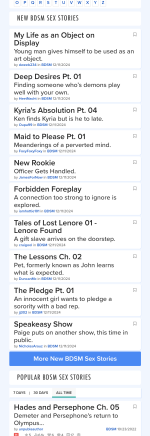mirafrida
"number-one amateur"
- Joined
- Apr 25, 2019
- Posts
- 261
Interestingly, there was a NY Times op-ed on this topic, with regard to "literary fiction" just a few days ago.
https://www.nytimes.com/2024/12/07/opinion/men-fiction-novels.html
A couple of snippets relevant to the various points made above:
https://www.nytimes.com/2024/12/07/opinion/men-fiction-novels.html
A couple of snippets relevant to the various points made above:
Novels are increasingly written by women and read by women. In 2004, about half the authors on the New York Times fiction best-seller list were women and about half men; this year, the list looks to be more than three-quarters women. According to multiple reports, women readers now account for about 80 percent of fiction sales.
In 2022 the novelist Joyce Carol Oates wrote on Twitter that “a friend who is a literary agent told me that he cannot even get editors to read first novels by young white male writers, no matter how good.”
